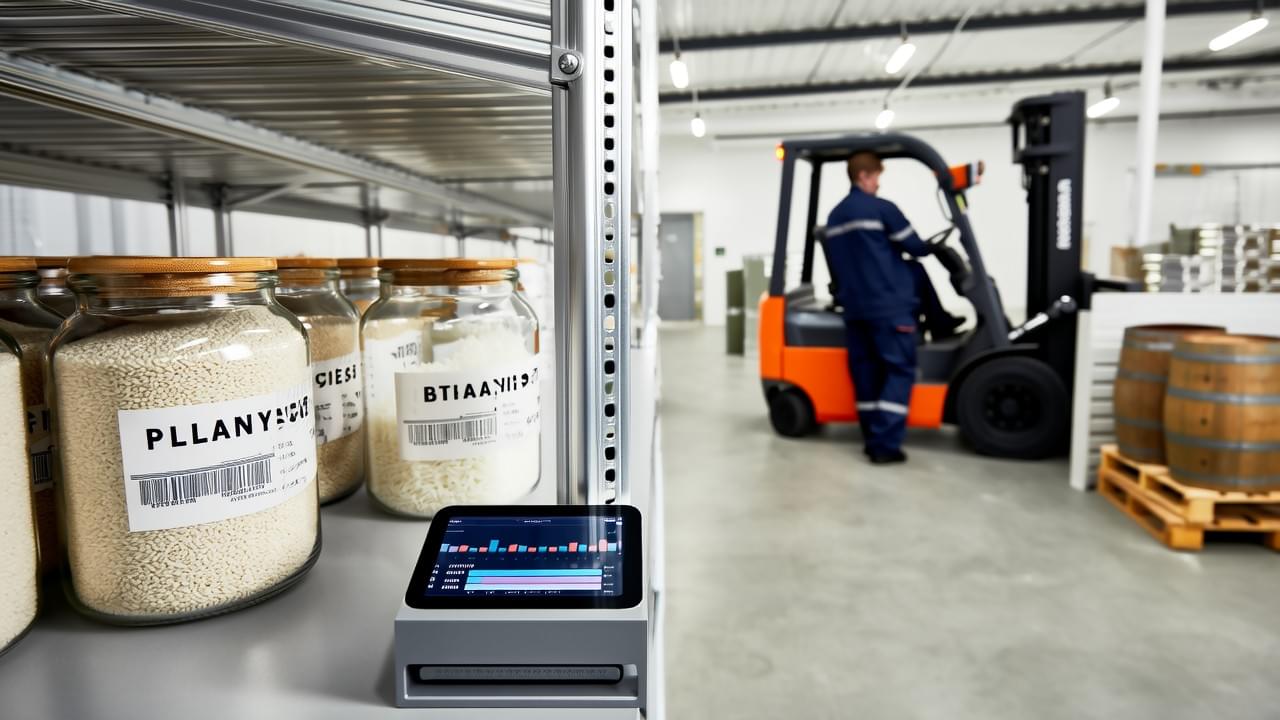In the competitive and fast-moving food industry, effective inventory management for food manufacturers can mean the difference between profit and loss. Without the right systems in place, companies risk costly shortages, overstocked perishables, and unnecessary food waste.
At Deli Foods, we’ve spent over 20 years perfecting how to balance supply and demand across global markets. Whether it’s natural honey, rice syrup, or plant-based protein, our production and delivery pipeline is built around inventory precision and operational efficiency.
If you’re looking to streamline your operations, reduce waste, and ensure stock availability, these six practical strategies will transform the way you manage your inventory.
Table of Contents
Toggle📦 Forecast Smartly: Use Data-Driven Demand Planning
Inventory problems often start with poor forecasting. For food manufacturers, understanding when and how much to produce or order is key. By analyzing historical sales, market trends, and seasonal patterns, you can create a demand forecasting system that helps reduce overproduction and product expiration.
Deli Foods uses real-time sales data across 30+ export markets to adjust production for ingredients like organic syrup and rice protein, ensuring our partners never face surprise stockouts or excess inventory.
🔍 Apply FIFO to Protect Freshness and Traceability
One of the most effective techniques for reducing food waste is FIFO (First-In, First-Out). By always using older inventory first, you reduce spoilage and ensure your customers receive the freshest products possible.
This is especially critical for natural ingredients such as liquid sweeteners and functional proteins, which have defined shelf lives. FIFO also simplifies traceability in case of recalls, a key requirement for food safety compliance in regulated markets.
📊 Prioritize Your Inventory Using ABC Classification
Not all items in your warehouse carry the same importance. ABC analysis helps you focus on the highest-value inventory:
- A items: Critical, high-volume products like organic syrups
- B items: Moderate value, seasonal or backup materials
- C items: Low-cost components, like packaging or minor additives
This approach ensures you allocate warehouse space, financial resources, and stock monitoring efforts where they matter most, improving your overall inventory control.
🔁 Streamline Reorder Points and Lead Times
Setting clear reorder points and understanding your supplier lead times can prevent emergency shortages and missed production deadlines. Automating reorder triggers helps you restock before problems arise.
At Deli Foods, our OEM/ODM partners benefit from a structured ordering system that keeps their ingredient pipeline steady—even during peak manufacturing seasons or logistics disruptions.
🌱 Align Inventory Control with Sustainability Goals
Inventory optimization is more than cost control—it’s also about minimizing waste. Food manufacturers are under increasing pressure to align with sustainable inventory practices, including reducing spoilage, minimizing packaging waste, and improving energy efficiency in cold storage.
Deli Foods actively tracks and reports on waste metrics, using lean inventory methods and batch planning to support both our partners’ bottom line and environmental values.
🌐 Collaborate Closely with Supply Chain Partners
Effective inventory management doesn’t happen in isolation. Building close collaboration between procurement, production, and logistics ensures a responsive system. Deli Foods’ integrated services—from raw material sourcing to finished product delivery—create a unified flow that adapts to demand without overproduction.
By offering end-to-end visibility, we help clients reduce buffer stock, avoid hidden costs, and meet delivery expectations with confidence.
📌 Final Thoughts: Inventory Is a Strategic Advantage
For food manufacturers, mastering inventory isn’t just a warehouse issue—it’s a critical part of your brand’s ability to deliver quality, consistency, and value. Poor inventory planning can erode profits and consumer trust. On the other hand, a strategic inventory system supports growth, sustainability, and efficiency.
Whether you’re launching a private label protein blend or managing large-scale syrup distribution, Deli Foods is your partner in precise, dependable inventory solutions.



